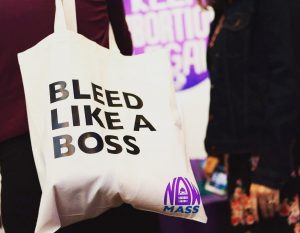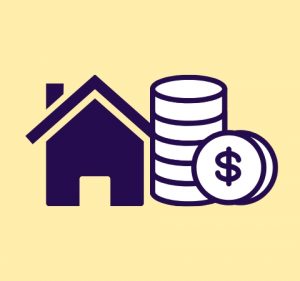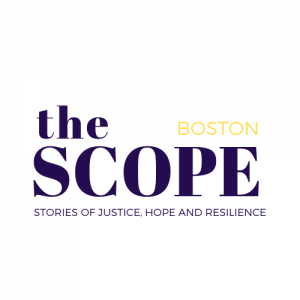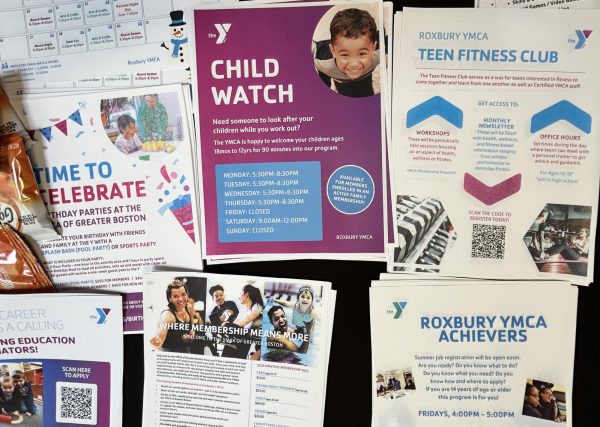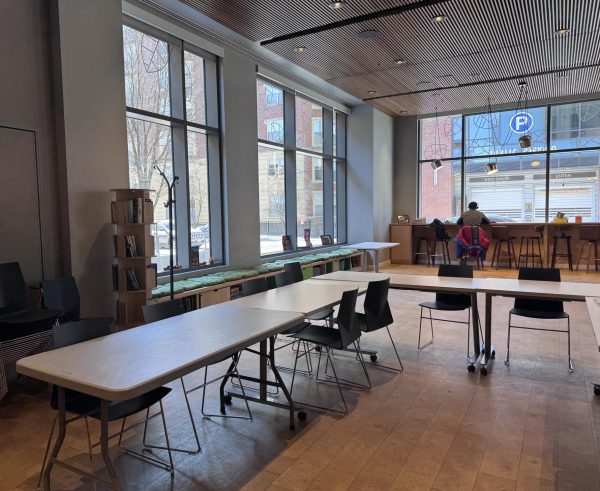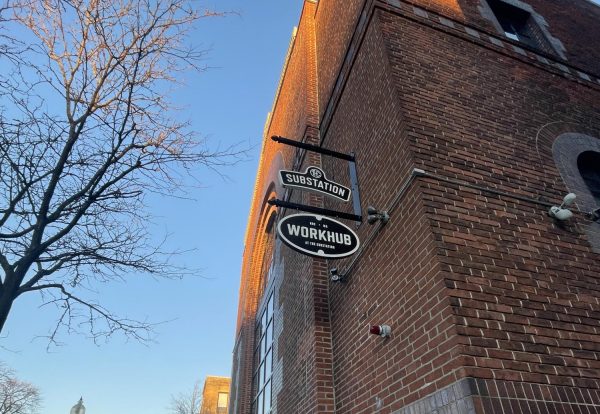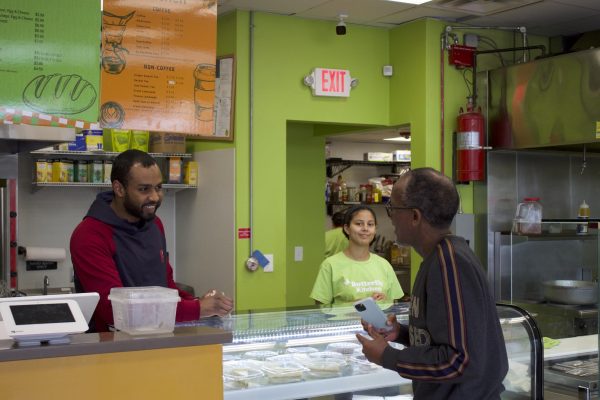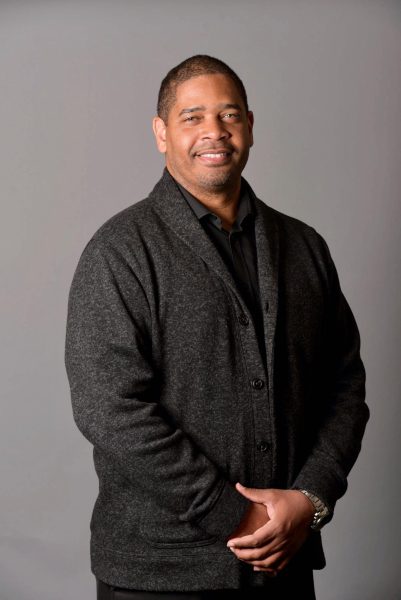Changemaker: Christine Nguyen, VietAID community center coordinator
When Christine Nguyen started her job as a community center coordinator at the nonprofit VietAID in March, she thought she would mainly be doing administrative work overseeing the community center’s activities and office spaces. Then the pandemic came.
Since March, Nguyen has been operating a meal site for kids and teens, helping Vietnamese people who are not fluent in English file for unemployment insurance and answering questions people have about COVID-19 at the Vietnamese American Initiative for Development (VietAID) in Dorchester.
A second-generation Vietnamese American born in the U.S. to immigrant parents, Nguyen switched from working in the medical field to nonprofit work and did an internship at VietAID where she learned about the challenges facing the Vietnamese diaspora and how groups and individuals in the community are mobilizing to tackle them.
Nguyen said she hesitated before applying for the job at VietAID because she felt she lacked the exposure to the community but pushed herself to do it anyway. “I didn’t grow up in the Vietnamese community, I didn’t feel confident in my Vietnamese,” she said. “But the fact that I’m a native English speaker gives me a lot of privilege and that’s a lot more important than my discomfort maybe is. There’s a lot of good that I can do and I have a duty to do that.”
Nguyen talked to the Scope about the work she’s been doing at VietAID during COVID-19, the challenges she faces and what she wishes people knew about her work. The following transcript was edited for length and clarity.
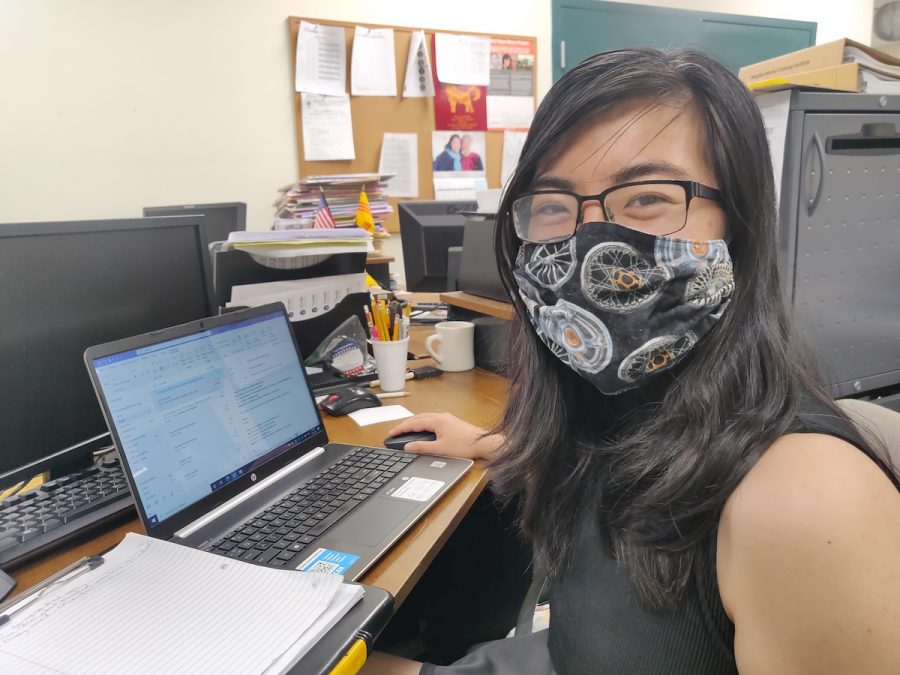
Q: How has COVID-19 changed what you were doing at VietAID?
A: With COVID-19 shutting down most in person services, managing this space has taken on a lot more meaning in a way because the community center at VietAID has become a hub for basic necessities, like food (we have a meal site here) and also information because when folks come to get food they inevitably ask questions about things that are going on. People ask questions like “Where’s my stimulus check?” “How can I get it?” or “I’m unemployed right now, how can I get help with applying for unemployment?” “When are things going to be open?” And a lot of folks that are particularly older monolingual folks, or those living alone, there’s a big technological barrier. So being able to come, having a place to go, literally, having somewhere to go where they can seek help is really important.
Q: How did you adapt to the changes?
A: You know, at first, there wasn’t really time to reflect. We heard we going to be one of the citywide meal site and then with the filing for unemployment assistance, I was getting dozens and dozens of calls every day from folks, not just in Boston, but in various cities in the Greater Boston area from Vietnamese folks particularly asking for help or having questions about unemployment just because they didn’t know what else they could get in language services. I’m putting in a lot of overtime. I think we all thought that a few more weeks and we will reopen in like a month or two. Now I think: “Okay, well, how are we going to deal with this long term, or at least just myself. How am I going to sustain this level of work long term?”
Q: At VietAID, you assist with people filing for unemployment insurance. How did the assistance come about?
A: Originally that was something that Greater Boston Legal Services (GBLS) was providing, and since they knew that we had some bilingual staff, they asked us for help. So, when people call in for help with unemployment, in the beginning, we would just take their contact information for a GBLS volunteer to help them submit the application. Since then, it has developed into this entire system where VietAID is now helping these workers with their applications from beginning to end.
A lot of times it’s a pretty complicated process; we help upload supporting documentation for folks who had tried to submit themselves, maybe they knew some English or maybe they were worried that they would lose benefits if they were late or make mistakes, so we also help with the appeals. And for all this, we work closely with GBLS and their team of lawyers who themselves work with the Department of Unemployment Assistance to try to make sure that everyone who qualifies for unemployment can get really, really valuable financial aid.
Q: What types of meals do you provide at the meal site, what’s the hours and who can receive the meals?
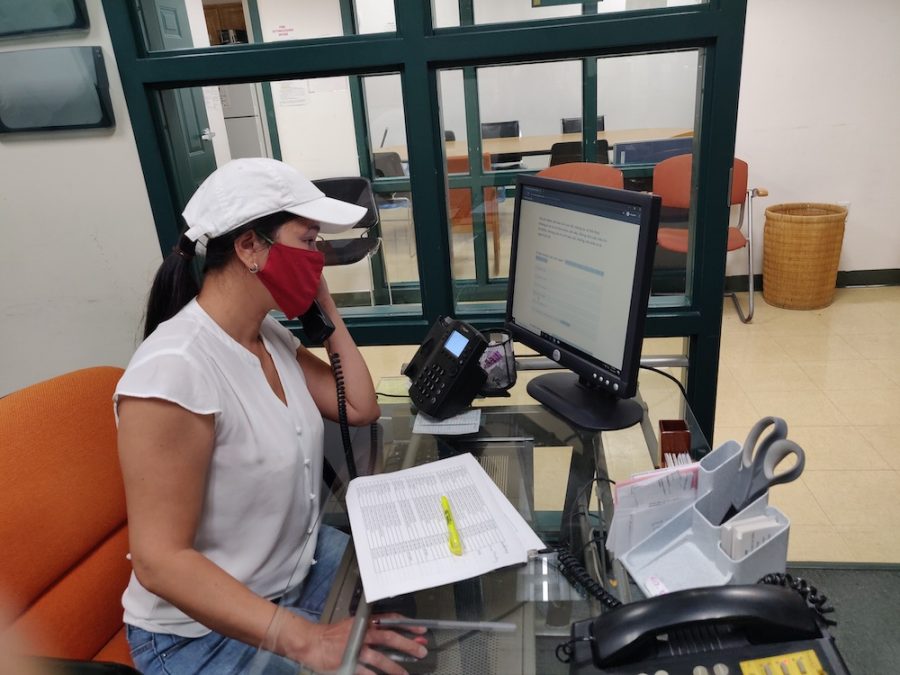
A: VietAID partnered with YMCA and Project Bread to operate as a Boston Public School meal site for kids and teens. It’s officially for Boston Public School students but really it’s for all kids and teens who come to the meal site. Originally the hours were Monday through Friday from 8 a.m. to 12 p.m. Just beginning of this month, we had to change our hours to 10 a.m. to 2 p.m. every weekday. The meal site is at VietAID community center on 42 Charles St. We distribute breakfast and lunch meals out of our lobby for kids and teens and parents can come without necessarily bringing their kids. They just need to come and say: “Oh I have three kids at home,” and then we have breakfast and lunch for them.
We also provide a number of hot meals for seniors every day as well and that’s just breakfast and lunch. And then every Friday, we try to pack additional grocery bags for folks coming in.
Q: Where do you get funding to provide grocery bags?
A: The source of groceries are kind of varied, sometimes they come from the YMCA. For the last couple months, we’ve had a really generous community member donating hundreds of dollars in Vietnamese produce to distribute every Friday. And sometimes we have also used funding to purchase our own produce, because sometimes the bags we get from the YMCA aren’t the most suitable for a lot of the population that we serve so we try to complement them with veggies that are more commonly used in Vietnamese cooking.
Q: How many volunteers do you have in the program?
A: VietAID actually got a grant from the city for Workforce Development to hire temporary workers, and particularly workers who are unemployed during the coronavirus and help them develop professional skills. So I have a team of three including myself right now with unemployment matters. For the meal site, we’re also using the grant we have to hire about five to six temporary workers to help me on site. We are really trying to kind of funnel money into our communities because they really need it right now.
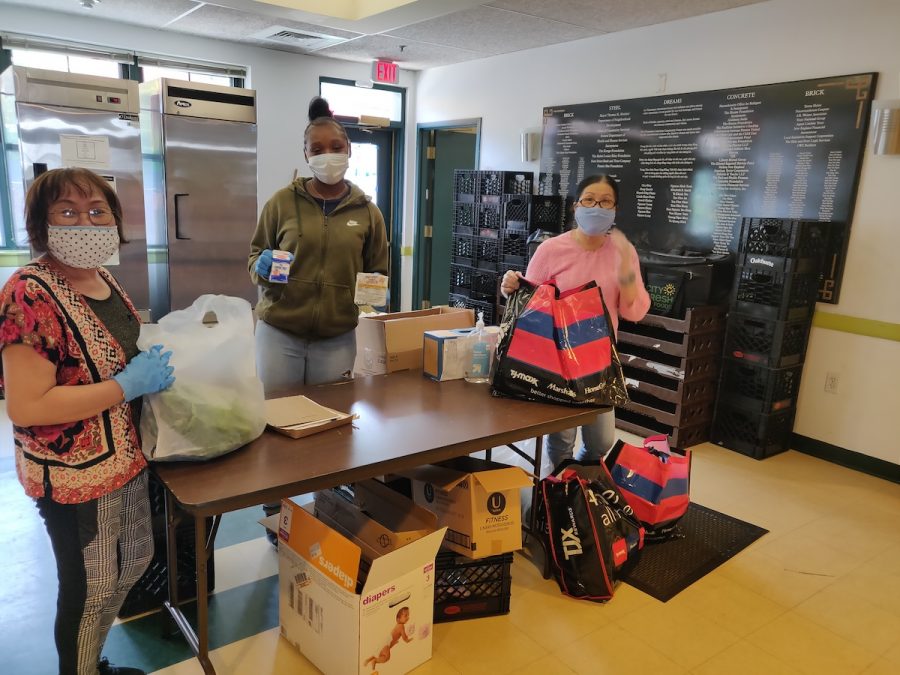
Q: What motivation keeps you going?
A: I think honestly, knowing that I’m really lucky to be secure in my job and in a relatively secure financial situation. It also motivates me to know that there are a lot of folks who need help out there. And I keep that in mind when I’m frustrated with daily interactions, maybe because people aren’t observing social distancing guidelines, or because I sort of have to repeat myself over and over about something like “these services are not in person, you have to call in, because we have to try to keep things safe.” I guess that keeps me going because I know that there are a lot of folks that are counting on the work that I and my staff do.
Q: What do you wish people knew about your work?
A: I notice just in my interactions with a lot of folks is that there’s a lot of conflation. A lot of folks don’t necessarily know where these services are coming from, so they might come to your site and just assume everything is provided by the government, for example. I’ve had folks talk to me on the phone and assume that I work for the Department of Unemployment Assistance and I’d have to explain that “No I don’t, I don’t work directly for the government I just work for a community organization, and we’re trying to help people navigate these public systems.”
The reason that I think that it’s really important for people to know what and where and who the services are coming from is that right now I feel like VietAID and a lot of other community organizations are working very hard to fill gaps. We’re in it for the long haul but looking forward, what we really want to do is try to change these public systems because the government is supposed to be the institution that makes sure that no one slips through the cracks that everyone is provided for. And as a community organization, we can definitely feel a supporting role, but in the long term, it’s through advocacy and fighting for changes in the laws, and that’s how we can make sure that it’s not only in a crisis that we can provide for people but that in the long term everyone can get what they need.



